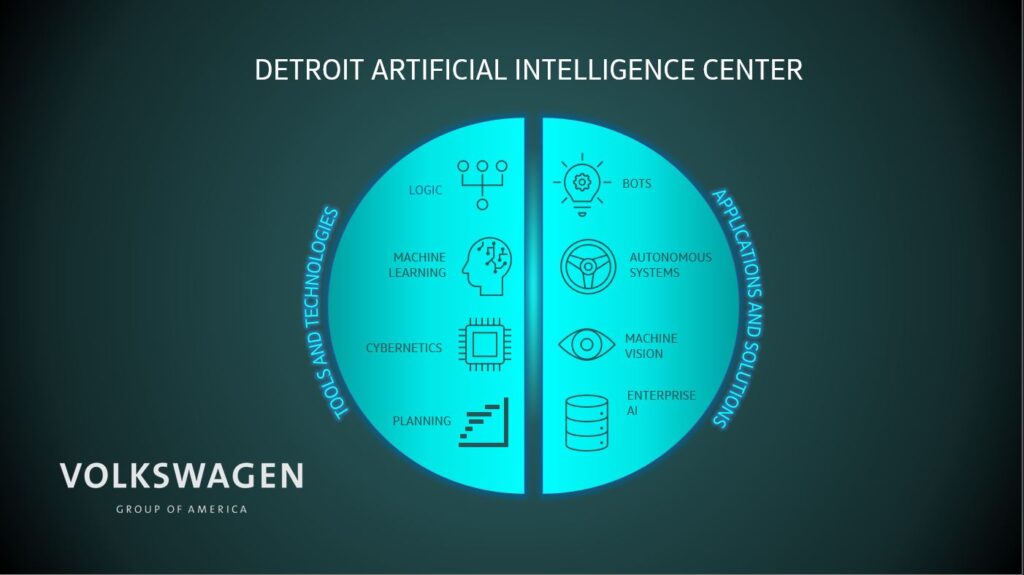Volkswagen has set up a dedicated AI research and development unit in the Motor City. The auto maker uses artificial intelligence (AI) to find patterns across huge data sets to make its everyday business smarter and more efficient – and for Volkswagen in North America, the hub of AI development now lives in Detroit.
As head of AI Detroit, Daniel Weimer will lead the team of machine learning scientists and software engineers dedicated to applying the latest AI and machine learning breakthroughs to the automotive business. Weimer and his team will monitor the latest developments in AI, from new techniques in machine learning to new software. AI Detroit will then work closely across Volkswagen Group of America’s different brands − from Volkswagen to Audi and Bentley − to find ways to implement those insights.
One key differentiator for AI Detroit lies in the ability to develop and operate AI solutions, feed them constantly with data from all across Volkswagen, and re-train the algorithms with new data. The next step will involve novel concepts that overcome current limitations of how an AI is trained, to create an engineering architecture to build up even more powerful analyses.
“AI is a toolbox of technologies to create smart solutions,” explained Weimer. “We’re trying to teach a computer to do things that are straightforward for humans, like understanding spoken language that can then be applied through software to real-world challenges.”
The manufacturer says that AI will not be used to replace employees with software: “It is key to develop technologies that serve and support Volkswagen employees,” stressed Weimer. “You let the AI do things AIs are good at, like finding patterns in huge data sets. But ultimately, our algorithms must always serve human decision makers. After all, humans are better in strategic decisions, more innovative and more creative.”
One example of an AI Detroit application is a scheduling tool for workers at the Volkswagen plant in Chattanooga. With some 2,000 employees, and multiple shifts, internal rules and individual skill sets, the possible permutations of setting a schedule quickly become immense.
“We now offer algorithms to basically find a much more optimal schedule for management and workforce alike,” explained Weimer. “We hope this can improve productivity, reduce physical stress for the workforce and even help them avoid sick days they may have needed in the past.”
Another project is the automated analysis and understanding of text in hundreds of thousands of documents to further improve product quality. The team in Detroit has developed an AI-based Natural Language Processing (NLP) technology that analyzes reports and claims to check similarities and patterns. This systematic analysis can help Volkswagen engineers detect possible quality issues quickly and feed them back into early stage of product development.
Volkswagen has also been using AI to optimize how to structure incentives programs and how to position different car lines in the market. By drawing on terabytes of sales data going back nearly 20 years, this system can reduce the guesswork of a model launch. Here again, AI algorithms support the human experts at the corporate level and dealers in decision making.
By locating its AI hub in Detroit, Volkswagen wants to attract researchers and developers who want to shape the future of the automotive industry and transportation – potentially worldwide.
“We’re in Detroit for a reason,” concluded Weimer. “You can knock on every door here and there’ll be someone with high automotive IQ. There’s all this awesome infrastructure and talent here, along with a great attitude of wanting to redefine the industry. There’s no other place where you find that.”


